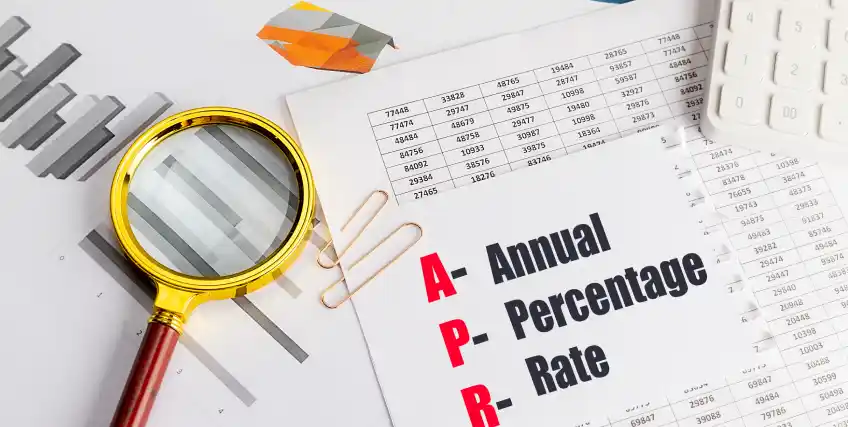A Guide to Securing Commercial Property Loans
April 10, 2025 | Last Updated on: April 10, 2025

Getting a commercial property loan is an important step for anyone looking to purchase real estate. These loans give you the cash you need to buy, develop, or renovate commercial properties.
This guide gives you a detailed walkthrough of how to get a loan, from preparing and applying, to approval and closing. You'll learn how to evaluate different loan options, prepare the necessary documents, negotiate terms, simplify the complex financial landscape and make informed decisions.
In this article:
- Understanding commercial property loans
- Prepare thoroughly by assessing your financial health, improving your credit score, and having a solid business plan.
- Compare lenders carefully and negotiate terms to secure the best possible loan for your business needs.
Understanding Commercial Property Loans
Commercial real estate financing is designed to help businesses acquire, develop, or refinance commercial real estate. You can use a commercial property loan to finance everything from office buildings to retail spaces, warehouses, and even multifamily housing. If you’re used to residential loans, you may be surprised to learn that commercial property loans have more stringent qualifications and higher interest rates.
Types of Commercial Property Loans
There are four main types of commercial property loans:
Traditional Commercial Mortgages
Traditional commercial mortgages from banks and other lenders are used to buy commercial real estate. Commercial mortgage rates can be either fixed-rate or adjustable-rate.
A fixed-rate mortgage keeps the same interest rate for the entire loan, so your monthly payment will never change. Adjustable-rate mortgages (ARM) start with a lower interest rate, but it can change frequently based on what the market is doing.
Traditional commercial mortgages are often used to buy office buildings, retail spaces, warehouses, or multifamily housing properties. In general, expect to pay 20-30% for a downpayment, and you’ll need a strong credit history to qualify.
SBA Loans
Small Business Administration (SBA) loans are similar to traditional loans, except they are backed by the SBA, which reduces risk for lenders. As a result, you can typically get a lower rate and better terms with these loans. On the flip side, the requirements for qualifying are more stringent. The two types of SBA loans that can be used for commercial property are the SBA 7(a) and the SBA 504.
The SBA 7(a) can be used for a variety of things, including real estate purchases, renovation, and working capital. The SBA 504 loan is specifically for purchasing fixed assets like real estate and equipment.
Bridge Loans
Bridge loans are designed to “bridge” the gap between your need for financing and a long term solution. These are short term loans that can give you fast funding, but have higher interest rates and repayment terms that range from six months to three years.
This might be a good option if you need to see an opportunity and want to buy a property fast, or need to start renovations to take advantage of a contractor’s schedule. Because they’re short term and high cost, you should only take out a bridge loan if you have a plan in place to secure long-term financing in the near future.
Hard Money Loans
Where bridge loans are short-term, high-interest loans from banks and financial institutions, hard money loans are short-term, high-interest loans from private lenders. Hard money loans are typically used by professional real estate investors who need to move fast on an opportunity. These loans are secured by the property itself, so they are available even if you don’t have a strong credit history.
That being said, unless you’re a professional investor or at a place of last resort, this probably isn’t the financing tool for you, as they can be quite expensive.
Eligibility Criteria
Eligibility for a commercial property loan varies by lender but generally you can expect the following:
- Creditworthiness: Lenders want to know that you make loan payments on time, that you haven’t defaulted on any financing, and that you are generally low risk.
- Business History: Lenders want to see that your company has a proven track record of making money, which means at least two years of being in business.
- Debt-Service Coverage Ratio (DSCR): This is a measure of your ability to service debt. Most lenders require a DSCR of at least 1.25.
- Down Payment: As already noted, you’ll likely need 20-30% of the purchase price as a downpayment, so lenders will need to see that you have the cash on hand. Some options, like SBA loans, may offer you a lower downpayment option.
How to Assess Your Eligibility
Wondering if you’re eligible? Here’s how you can estimate your eligibility and improve your chances of securing a loan:
Review Your Credit Score
Start by obtaining your credit report and reviewing your credit score. A higher credit score increases your chances of securing a loan with favorable terms. Aim for a score of 680 or higher, but note that some lenders may require a score of 700 or above for commercial loans. If your score is lower, take steps to improve it, such as paying down existing debt, correcting any errors on your credit report, and avoiding new credit inquiries.
Analyze Your Business Financials
Pull together all of your company’s financial statements (income statements, balance sheets, cash flow statements) and organize them in one place, as lenders will use them to see if your business is healthy or not. Ensure your financials show a stable income, healthy cash flow, and a manageable level of debt. If there are any weaknesses, such as inconsistent revenue or high expenses, work on stabilizing and improving these areas.
Evaluate Your Debt Service Coverage Ratio (DSCR)
The DSCR is a key metric used by lenders to determine your ability to repay the loan. It is calculated by dividing your business's annual net operating income by the annual debt obligations. A DSCR of 1.25 or higher is generally considered strong, indicating that your business generates enough income to cover its debt payments comfortably. If your DSCR is below this threshold, focus on increasing your net operating income or reducing debt.
Use our Debt Service Credit Ratio Calculator to help estimate your DSCR.
Address Areas that Need Improvement
If you have any areas that need to be improved, be proactive about fixing the issues. This could include implementing cost-cutting measures to improve cash flow, restructuring existing debt, or increasing your business's revenue through strategic initiatives. If you can solve any issues that come up, you’ll be well on your way to both getting a loan.
Build a Strong Financial Foundation
It’s important to show that you have a strong financial foundation. This includes keeping healthy cash reserves, having a diversified revenue stream, and showing a long history of profitability.
Develop a Clear Loan Utilization Plan
Prepare a detailed plan for how you intend to use the loan funds to generate revenue and grow your business. This plan should include projections for increased income, cost savings, or other financial benefits resulting from the loan. A well-thought-out plan demonstrates to lenders that you have a strategic approach to using the funds effectively.
Tips Before You Apply
Before applying for a commercial property loan, it's essential to prepare thoroughly. Doing so will save you time and increase your odds of getting approved for favorable loan terms and conditions. Follow these tips to get started, and consider consulting a financial advisor for more specific advice for your unique situation.
- Assess Your Financial Health: Evaluate your business’s financial statements, including income statements, balance sheets, and cash flow statements. Ensure they accurately reflect your financial health and are up to date.
- Draft a Strong Business Plan: A well-developed business plan outlines your business’s goals, strategies, and how the loan will help achieve them. This plan should include detailed financial projections to demonstrate your ability to repay the loan.
- Improve Your Credit Score: Pay off existing debts, ensure timely bill payments, and correct any errors on your credit report. Improving your credit score can help you secure better loan terms.
Choosing the Right Commercial Property
If you are really serious about real estate, then make sure you choose the right kind of property, as it can make a large impact on the loan terms you receive. Different property types have varying risk profiles. For example, retail spaces might have higher risks than office buildings, affecting the interest rate and loan-to-value ratio you can secure.
Location can also make a difference—a property in a prime area may be more likely to be funded than one in an area that is in decline.
Finding the Right Lender
Whenever you’re considering a financial product, it’s important to shop around lenders to find the one that is best suited for your unique situation. First and foremost, ensure they have commercial real estate lending experience. Ask if they’ve worked with other small businesses in the area and research the lender’s reputation, reviews, and customer service offerings.
You’ll also want to weigh their offered interest rates, loan terms, and fees. These can vary greatly between lenders and lender types.
The variety of lender you work with can also have a large impact on your borrowing experience. Here are some factors to consider:
Pros and Cons of Different Lender Types
|
Type of Lender |
Pros |
Cons |
|---|---|---|
|
Traditional banks |
Competitive rates and lots of experience with CRE loans |
Stringent requirements and longer approval process |
|
Credit Unions |
Lower rates and fees, experience serving SMB customers |
Limited geographic reach |
|
Quicker approval process and flexible terms |
Can carry higher rates and fees |
|
|
Specialized Commercial Lenders |
Tailored products to CRE and higher loan amounts |
Strict requirements and limited accessibility |
The Application Process
Before applying, you’ll need to gather necessary paperwork, like your business financial statements, tax returns, business plan, and details about the property you intend to purchase.
Once you’ve collected the necessary documentation, applying for your loan will typically involve these key steps:
- Pre-Qualification: Provide basic information to get an estimate of loan terms.
- Submission of Application: Submit a detailed application with all required documentation.
- Loan Underwriting: The lender reviews your financials, business plan, and the property details.
- Approval and Commitment: If approved, you’ll receive a commitment letter outlining the loan terms.
- Closing: Sign the final documents and pay any closing costs.
Common Mistakes to Avoid in the Application
Lenders see a lot of common mistakes when people apply for commercial real estate (CRE) loans. Here are a few to avoid:
- Incomplete Documentation: Don’t even start your application until you have all the necessary paperwork on hand. Since most files these days are digital, make sure the names are all correct and easy to remember, and save them all to the same file on your computer for ease of use.
- Inaccurate Forecasts: Your forecast should avoid looking like, “There are 350 million people in the U.S., so my market size is 350 million people.” Be realistic.
- Misunderstandings: If you don’t know what a word or phrase means, ask. If you’re still not sure, ask again, or ask someone to help you. You’re not an expert in commercial property loans yet, but if you want to become one, the way to grow is to be humble about what you don’t know, ask lots of questions, and join communities or even Facebook groups of people who are willing to help.
How to Negotiate Favorable Loan Terms
Negotiating favorable terms on a commercial real estate (CRE) loan takes preparation, understanding of the market, and effective communication with lenders, but it’s not impossible—or even uncommon.
Here are some key strategies:
- Seek Professional Advice: Consult with a financial advisor or mortgage broker who specializes in commercial real estate. They’ll be able to give you insights into the market and perhaps even negotiate on your behalf.
- Consider Loan Terms: Cost isn’t the only thing to pay attention to when it comes to CRE negotiations. You can try to get flexible repayment schedules, longer term lengths, and fewer/no prepayment penalties.
- Offer Collateral or Guarantees: You can get a lot if you offer more collateral. If you want better terms, see what you can offer up.
- Highlight Your Experience: Lenders want to back people who are experienced. If you have years of experience, talk about it!
- Build a Relationship: This is often overlooked, but reaching out to your lender and building a relationship with them can go far when it comes to not only getting financing, but also getting better terms.
- Be Prepared to Walk Away: This is the first rule of every negotiation, but you have to be willing to walk away. Otherwise, you have no leverage and have little likelihood of getting what you want.
Closing the Loan
When it comes time to close the loan, the first thing to do is to review all of your paperwork carefully. You need to make sure that everything matches what you agreed on in your negotiation. Sometimes a lender will miss things accidentally, so take your time to understand each document before signing and moving on. Once you sign, you’ve formalized the agreement and the loan is official. There will likely be a stack of paperwork to go through, so again, don’t hesitate to ask questions if there is anything you don’t understand.
When you sign you’ll have to pay the closing costs. These are often included in your loan fees, but it’s helpful to plan for these expenses when you’re still in prep phase, rather than being surprised by them at the end.
And now, once the docs are signed and you’ve paid all fees, the commercial property is officially in your hands! This means you gain all rights and responsibilities associated with owning or financing the property.
Conclusion
Getting a commercial property loan can seem scary or overwhelming, but if you follow the steps laid out above, you’ll soon be on your way to owning commercial property and (hopefully) gaining more income. And if you need cash for this, you can always secure the financing you need to achieve your business goals.
FAQs
What are the main types of commercial property loans?
The main types include traditional commercial mortgages, SBA loans, bridge loans, and hard money loans.
What are banks looking for when they approve a commercial property loan?
Lenders will evaluate a borrower’s financial health by analyzing their credit score, business history, DSCR, and down payment capability.
How can I improve my chances of getting a commercial property loan approved?
Maintain a strong credit score, have a solid business plan, and ensure your financial statements are accurate and up to date.
How is getting a loan for a commercial property different than getting one for a residential property?
Commercial property loans typically have higher interest rates, more stringent borrower requirements, and a more complex approval process compared to residential loans.
Frequent searches leading to this page
commercial property loan calculator, commercial property loan interest rates, commercial loan rates, refinance commercial property




